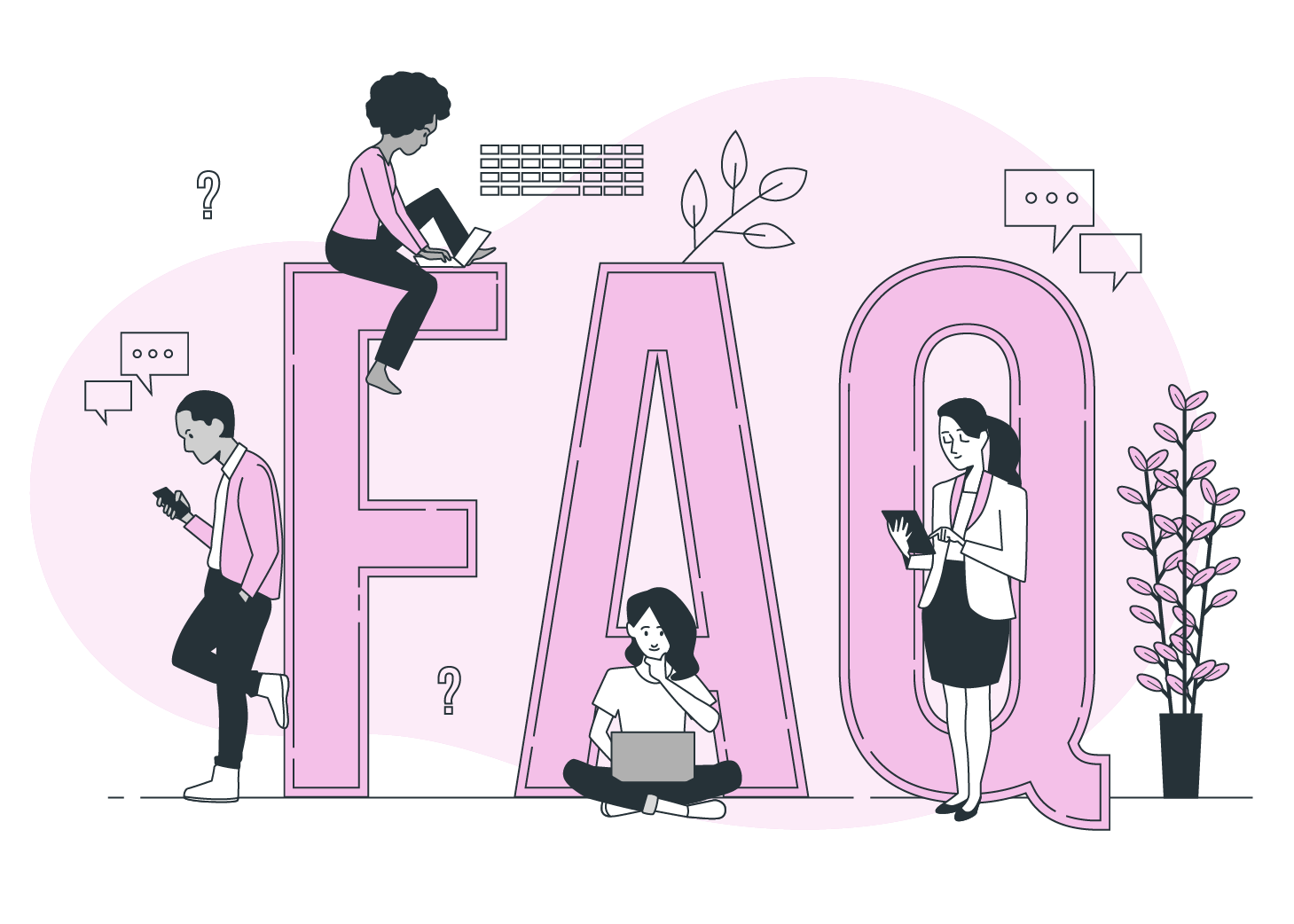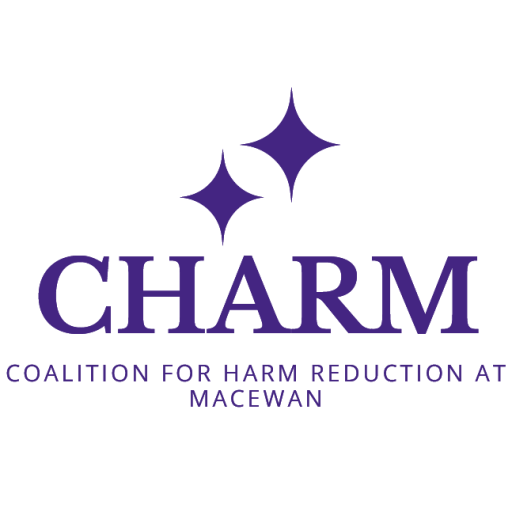Contact Us
If you have any questions about our services, events, or harm reduction in general, feel free to contact us below.
CHARM
Primary Contact
charm@macewan.ca
Sydney Bennell, RN
Co-Chair Contact
bennells@macewan.ca
Sarah Stone, MSW
Co-Chair Contact
stones27@macewan.ca
FREQUENTLY ASKED QUESTIONS
About CHARM

What does CHARM stand for?
The Coalition for HArm Reduction at MacEwan.
Who is involved with CHARM?
CHARM consists of campus and community partners. Our members include Wellness & Psychological Services, the Office of Sexual Violence Preventing, Education and Response, MacEwan Residence, the Students’ Association of MacEwan University, MacEwan Students, Alberta Health Services, and a community pharmacist.
Does CHARM have a Terms of Reference?
Yes, you can find our TOR here.
Do you offer training or workshops?
Yes! CHARM offers various harm reduction themed training and workshops for MacEwan University students, staff and faculty.
Some workshops include:
- Alcohol and Consent
- Safer Partying
- Harm Reduction 101
- Naloxone Training
CHARM can tailor our presentations to meet your learning goals.
If you would like to schedule a workshop or learn more about our workshops, please email CHARM@macewan.ca.
Do you give out Naloxone?
No, CHARM cannot distribute naloxone on campus, but we work with our community partners to offer in-person or virtual naloxone training. For in-person sessions, naloxone kits may be available. To learn more about CHARM-facilitated naloxone training, please contact CHARM@macewan.ca.
If you are looking for naloxone kits near campus, many options are available! The MacEwan University Health Centre provides community members with naloxone training and kits for personal use. There are also many pharmacies located near campus that can provide naloxone kits.
Do you provide direct support or counselling?
No, CHARM does not offer direct support for mental health and addictions. CHARM focuses on raising awareness, providing educational opportunities, and advocating for harm reduction on campus.
To learn more about MacEwan University services for students, staff, and faculty, please visit MacEwan.ca/campuslife.
How can I get involved?
Are you interested in volunteering with CHARM? Are you passionate about harm reduction and creating a supportive campus community? CHARM has many opportunities for campus members to get involved!
Students:
CHARM has many volunteer opportunities for students to get involved. CHARM seeks students interested in hosting educational displays, facilitating workshops, creating social media content, developing resources, and more. Email CHARM to find out more (CHARM@macewan.ca).
Staff/Faculty:
CHARM frequently collaborates with campus staff and faculty for programming and initiatives. If you are interested in connecting with CHARM to discuss collaboration opportunities, please email CHARM@macewan.ca.
Does CHARM host events?
Yes! Check out MacEwan’s events page to find CHARM hosted events throughout the year!
About harm reduction

What is a harm reduction approach?
A harm reduction approach aims to reduce the negative consequences of using psychoactive substances without necessarily reducing substance use.
Through policies, programs, and practices, a harm reduction approach:
- Accepts that abstinence may not be a realistic or desirable goal for a person
- Emphasizes that stopping substance use is not required to access health or social services
AHS. (2019). Harm Reduction: a harm reduction approach. [PDF]. https://www.albertahealthservices.ca/assets/info/hrs/if-hrs-a-harm-reduction-approach.pdf
What does harm reduction look like?
Harm reduction can look like any action individuals and communities take to reduce the potential negative outcomes of engaging in higher-risk behaviours or higher-risk environments.
You may be familiar with common harm reduction practices, like:
- Using a marked crosswalk at intersections
- Wearing a seatbelt in a motor vehicle
- Wearing a helmet while riding a bike
- Practicing safer sex
When we think about substance use and harm reduction approaches, we include interventions that may target the person, family, community, or society. They can target the health, social, or economic consequences of substance use.
Harm reduction interventions may include:
- Mandatory ProServe training
- Community-based naloxone programs
- Peer support programs
- Supply distribution and recovery programs
- Supervised consumption services
- Opioid dependency treatments
AHS. (2019). Harm Reduction: spectrum of substance use. [PDF]. https://www.albertahealthservices.ca/assets/info/hrs/if-hrs-spectrum-of-substance-use.pdf
